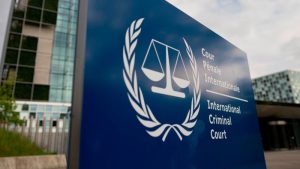Israeli strikes kill more than 270 in Lebanon, says health ministry
Unlock the Editor’s Digest for free
Roula Khalaf, Editor of the FT, selects her favourite stories in this weekly newsletter.
Israel launched a relentless wave of air strikes against what it said were Hizbollah targets on Monday, killing almost 300 people in Lebanon’s deadliest day for decades and pushing the region closer to all-out war.
Israeli warplanes struck hundreds of targets across the country, including Beirut’s southern suburbs, as Benjamin Netanyahu’s government ramped up its assault on Hizbollah in a “new phase” to the war.
The bombardment heightened concerns about full-scale hostilities in the Middle East and spread panic across Lebanon, sending tens of thousands fleeing targeted areas.
Monday’s death toll was the highest since Israel launched a ground offensive against Hizbollah in 2006, and came despite the US warning Israel not to escalate its military campaign against the Iranian-backed militant group.
Israel’s army said it had hit some 800 Hizbollah targets and would continue to strike buildings where it believed the militant group was storing weapons, warning civilians to evacuate.
“We are not waiting for the threat, we are pre-empting it,” Netanyahu said in a video statement, as the Israeli premier warned of “complex days” ahead.
“We are eliminating senior figures, terrorists and missiles . . . I promised that we would change the security balance, the balance of power in the north — that is exactly what we are doing.”
The Israeli cabinet late on Monday approved a “special [emergency] situation” across the country that allows the military more latitude to restrict civilian life and activities due to the war in anticipation of a fierce Hizbollah response.
Lebanon’s health ministry said 39 women and 21 children were among the almost 300 dead, with at least 1,024 people injured. Roads in southern Lebanon were packed with cars as civilians fled north towards Beirut and schools across the country were turned into emergency shelters for the displaced.

Israel issued several warnings throughout the course of the day, urging civilians to leave any buildings where Hizbollah stored weapons, first in southern Lebanon and then in the Bekaa Valley in the country’s east. Both are areas where Hizbollah has long had a major presence.
Beirut residents told the Financial Times they received warning calls on their landlines from the Israeli military ordering inhabitants of villages in targeted areas to leave.
In its statements, the Israel Defense Forces said people had two hours to leave any potential targets and advised them to move at least 1km away.
In response to the IDF strikes, Hizbollah said it had fired dozens of missiles at multiple targets in northern Israel including a site owned by the Rafael defence company north of Haifa. It stressed the attacks “in defence of Lebanon and its people” were focused on military targets.
Sirens sounded multiple times in northern Israel throughout the day. But fewer rockets hit population centres in Israel than on Sunday, when the militant group hit the suburbs of Haifa.
One strike on Monday hit a private home in the village of Givat Avni in the Galilee, Israeli media reported. Rockets were also intercepted over the occupied West Bank, a regional council for Israeli settlements in the area said.
Israeli defence minister Yoav Gallant told citizens to prepare for a more intense response. “We are deepening our attacks in Lebanon, the sequence of operations continues,” he said. “Ahead of us are days when the public will have to show composure, discipline.”
The escalation has stoked fears that a full-blown land war could be imminent. The raids on Monday are the most aggressive assault in Lebanon since the Iran-backed militant group launched rockets at Israel the day after Hamas’s October 7 attack on the Jewish state.
Asked about the possibility of a land incursion into southern Lebanon, Rear Admiral Daniel Hagari, an Israeli military spokesman, said the country would continue to “do whatever is needed” to prevent Hizbollah from being able to strike northern Israel and to allow local residents to return to their homes.
Iran’s president Masoud Pezeshkian said that Israel was seeking to “trap” his country in a wider war. “They are dragging us to a point where we do not wish to go,” he told reporters on Monday.
Ziad al-Makary, Lebanon’s information minister, said on social media that a large number of residents in Beirut and other areas received “random” phone messages via their landlines telling them to evacuate their locations.
His office in Beirut received one of the calls, which he said were part of Israel’s policy of “psychological warfare”, adding that “work at the Ministry of Information continues as usual”.
The strikes prompted chaotic scenes across the country. Videos in Lebanese media showed explosions rocking villages in the Bekaa Valley, and paramedics and residents picking their way through rubble following an air strike. Schools closed across Lebanon’s southern and Bekaa regions as well as Beirut’s southern suburbs.
The health ministry asked all hospitals in the country’s south and east to halt non-urgent surgeries to make room for those injured in the Israeli strikes. Hospitals in the north of Israel also began relocating operations further south away from the fighting.
Lebanese Prime Minister Najib Mikati said during a cabinet meeting that the Israeli attacks were a “war of extermination”. Citing UN secretary-general António Guterres, who warned on Sunday that southern Lebanon could turn into “another Gaza”, Mikati called on the international community “to pressure Israel to end its aggression”.
The hostilities follow the mass detonations of Hizbollah’s communications devices that killed 37 people and injured more than 3,000 across Lebanon, and which the militant group blamed on Israel. Israel has not directly confirmed or denied responsibility.
#Israeli #strikes #kill #Lebanon #health #ministry




